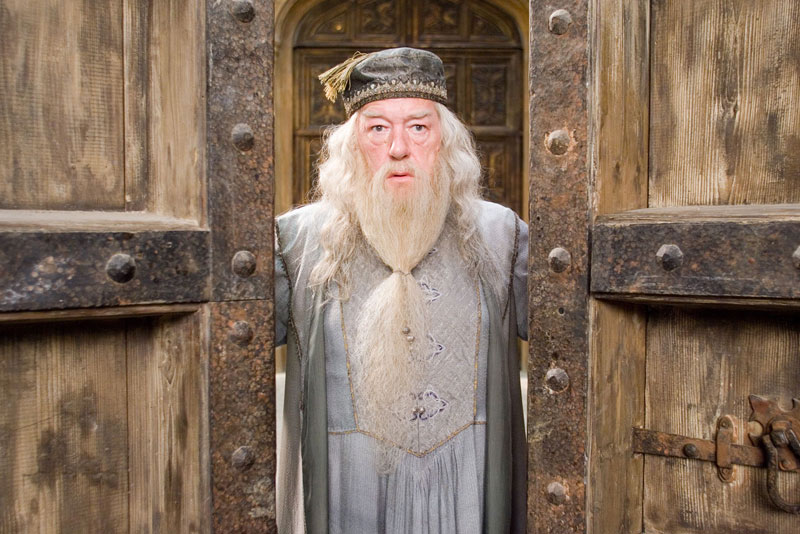By Rosa K. Hirji
If it wasn’t for Professor Dumbledore, Principal of Hogwarts, Harry Potter would have been expelled during his first year. Even worse, he could have been imprisoned in Azkaban with his soul sucked out by Dementors. After all, Harry broke rules every chance he got – from sneaking around the corridors, leaving grounds without permission, talking back to his professors, cheating in Potions class, and using magic outside of school, to causing a full-scale revolt.
Discipline at Howarts failed to force Harry to conform to school standards. Loss of house points, humiliation, suspension from the Quidditch team, detention, persecution by school security (Argus Filch), an expulsion hearing, and even torture could not reign in his rebelliousness.
Harry was the kind of kid that needed to gain knowledge for himself. Harry did not follow individuals, instruction, or rules on blind trust. He was critical, and curious. But above all, Harry acted on his principles, regardless of the consequences. It is these qualities that impelled him to leadership in the fight against tyranny. (On a side note, it is also these characteristics that earned him an “Outstanding” on his Defense against Dark Arts examination.)
In spite of his stubbornness, Harry did not find his way on his own. He and his friends were protected by Professor Dumbledore. Dumbledore understood the nature of young people. He saw strengths in their individual and collective rebelliousness, gave them space to find their own way, and showed compassion and forgiveness. He did all he humanly and magically could to protect them from the harshness of the world outside, even when it meant breaking rules. At the same time, he provided them with tools, opportunity, trust, and a sense of responsibility to navigate the world on their own when the time came. Most of all, Dumbledore was an example to the young students. He was a staunch supporter of the rights of all oppressed people and creatures, a political dissident, and a renowned scholar in his own right.
Students in our schools who commit similar acts as Harry, such as truancy, disruptive behavior, and insubordination are at risk of suspension, expulsion, citation, arrest and other forms of exclusion. During the 2007-2008 school year, the most common reason for serious disciplinary actions in U.S. schools was “insubordination” (43 percent of all actions). School based arrests are also at an all time high, with the common reason being “disturbance of the peace” or “disruptive conduct”. Unlike at Hogwarts, students in our schools are also at risk of punishment for being who they are. African American students, for example, are three times more likely and Latino students are two times more likely to be suspended than white students. Being a student with a disability, a foster child, or a LGBTQGNC youth puts young people at additional risk of being pushed out of school.
According to the Advancement Project, a national civil rights organization,
What happened to these youth was symptomatic of a much larger problem: many of the people put in position to support and care for our young people had become increasingly fearful of, and hostile toward them. Because of that mindset, during the last ten years the zero tolerance philosophy has spread across the country, fundamentally transforming school culture and the way young people are viewed. In the process, this punitive disciplinary approach has caught millions of students and their families in its wake, robbing young people of their education and irrevocably damaging countless lives.
The question that we must ask ourselves as a society is, how many of these students could be the next generation of movement builders, leaders, and contributors to society?
Dumbledore teaches us that rebellious tendencies are not necessarily a bad thing. If I was a school administrator, here are the lessons I would take from Dumbledore on school culture and discipline:
- Teach critical thinking, tolerance, and respect for all human beings.
- Give special attention to those youth that require it.
- Try to see things from the perspective of youth, and anticipate their interests and needs.
- Expect youth to make mistakes and rebel. Rules can be broken and mended. Consequences should be fair. Some rule-breakers are special people, so guide them.
- Treat staff fairly, and give them the trust and ability to guide students.
- Protect students and staff from becoming scapegoats of external corporate or political interests.
- Refrain from bringing law enforcement to the school. Reign in staff and enforcement authorities who go too far.
- Be a role model by standing up for what is right, even at personal risk.
Our children will make a better future, if we give them all a chance – without exception. There is always a risk that a death eater could arise from their midst. One solution is to go the way of zero tolerance policies and law enforcement tactics. But fear will only push the boundaries of acceptability and crush too many young spirits along the way. We don’t need magic to make the right choices. We need the leadership and rebelliousness of youth, and the adults who support them.
Rosa K. Hirji provides legal representation to youth that are being pushed out of schools and works for systemic reform of education policy as a core group member and featured blogger of the Dignity in Schools Campaign.

